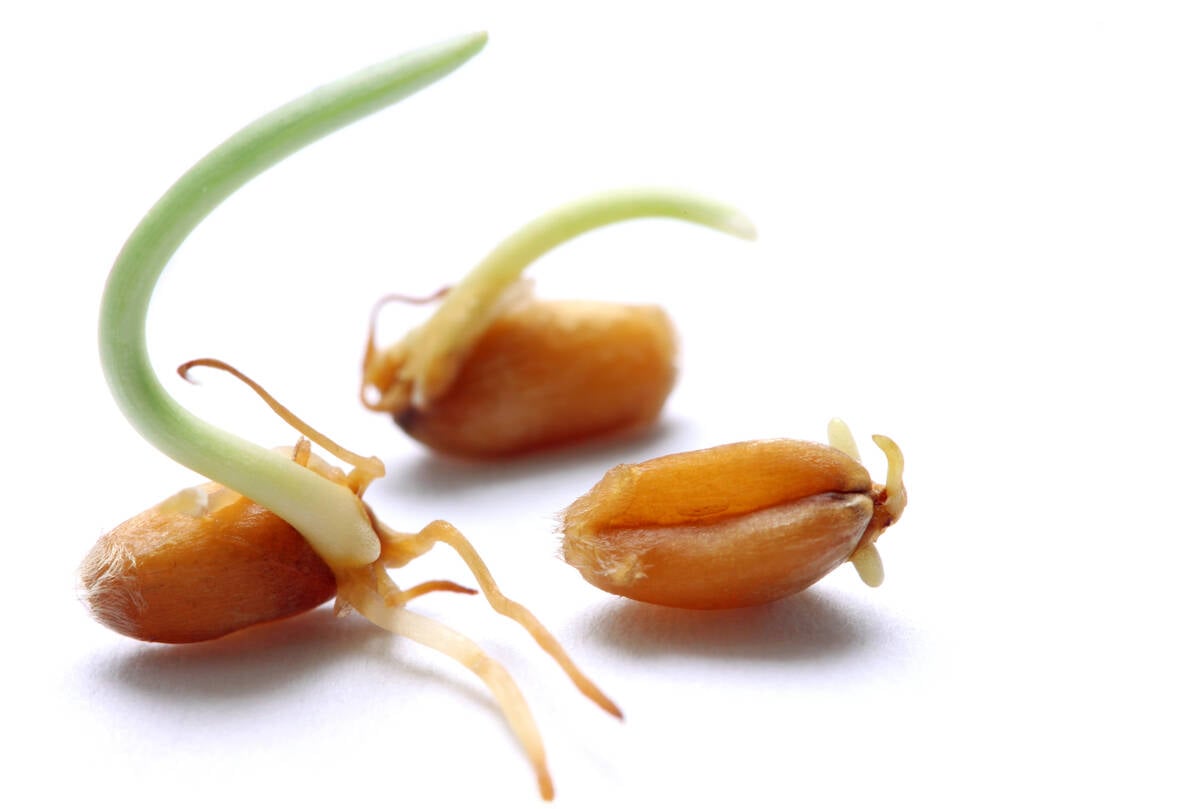Donation helps grow College farm land base
Judy Sweet has made a $500,000 donation to enable Lakeland College to increase the school’s farm land base in the future.
More acres will provide more opportunities for ag-based research initiatives by agricultural sciences students.
The gift builds on Sweet’s previous support of the modernization and expansion of the G.N. Sweet Livestock Research Facility where students are trained on feed efficiency testing of livestock.
Animal science technology and crop technology students currently have access to 2,000 student-managed acres of crop and pasture land, hundreds of head of livestock and numerous learning facilities at the Vermilion campus.
Read Also

Manitoba farmers fight sprouted wheat after rain
Rain in mid-September has led to wheat sprouting problems in some Manitoba farm fields.
Since Lakeland last grew its land base in 2010, the number of animal science technology and crop technology students has risen from 90 to 266 students, which is an increase of almost 200 percent.
Producers receive tax relief for 2018
Extreme weather conditions have caused feed shortfalls, which has led to designated regions in British Columbia, Alberta, Saskatchewan, Manitoba, and Quebec being eligible for livestock tax deferral provision.
In an effort to replenish their herd, livestock producers in prescribed drought, flood or excess moisture regions may defer a portion of their 2018 sale proceeds of breeding livestock until 2019.
The cost of replacing the animals in 2019 will offset the deferred income, which will reduce the tax burden associated with the original sale.
In addition to the new provision, producers have access to assistance through existing Canadian Agricultural Partnership Business Risk Management programs, which include AgriInsurance, AgriStability and AgriInvest.
Producers located inside the designated areas can request the tax deferral when filing their 2018 income tax returns.
Expanding U of C veterinary program
Under the 2018 budget, the Alberta government has allocated $7.2 million to expand the University of Calgary’s veterinary medicine program.
The money will improve access and learning facilities for students pursuing careers in veterinary medicine.
The project includes a new animal laboratory and clinical spaces, an expanded surgery suite, new student and teaching spaces, and a large lecture hall.
Students from across the province will have more access to the program’s community-based practicum model, which connects veterinary students with rural practices to meet labour market demand.
The university is expanding its veterinary medicine program by adding 80 additional seats by 2023, which will bring the program’s capacity to more than 200 veterinary students.
It is estimated that Alberta will need 1,100 veterinarians by 2023 to meet labour market demands.
Consortium wants bigger bite of market
Members of the National Apple Breeding Consortium have joined forces to give the fruit crop some added bite in the marketplace.
Advances in the science of apple breeding and more efficient orchard designs are making it possible to bring new varieties more quickly to market.
It used to take 25 years to develop a new apple variety, however with the advent of gene sequencing, apple breeders can quickly find and select the traits they want.
Compared to orchards of old that were dominated by large, difficult to pick trees, today’s growers are establishing high-density orchards using dwarf trees that are easier to harvest.
This will capitalize on consumer interest in apples with unique tastes and textures, while giving growers varieties that are more resistant to disease and insects.
Like wine grapes, the consortium believes more regions of Canada could become renowned for their own unique apple varieties.
Development of new apple varieties suited to different regions of the country will accelerate with collaboration from researchers, growers and marketers within the consortium.














